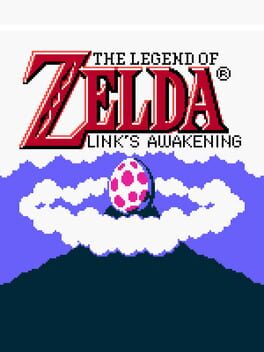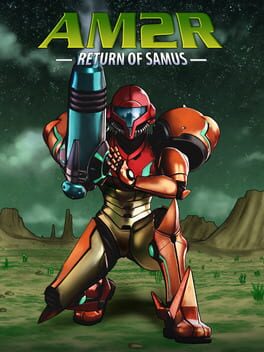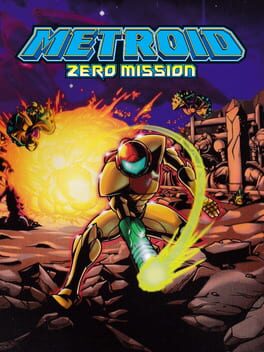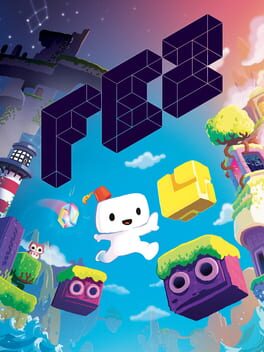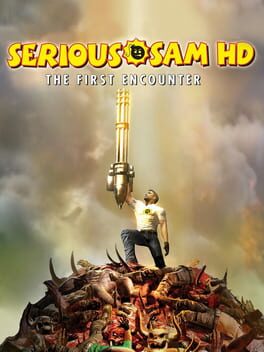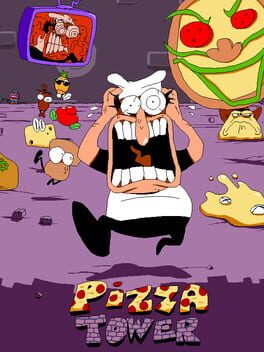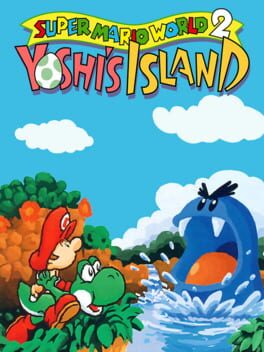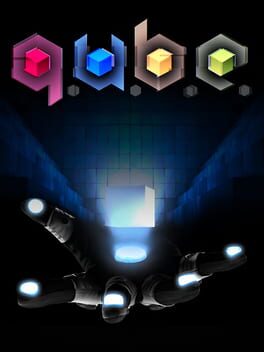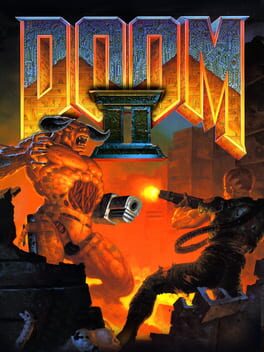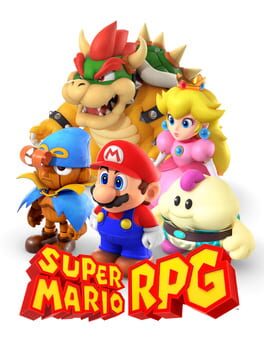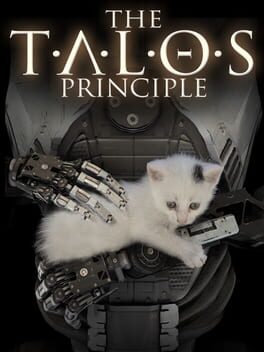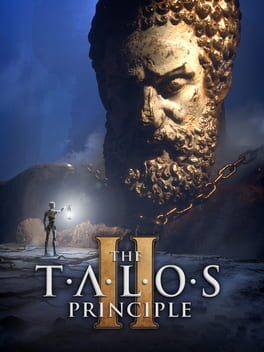Marjar
Interesting concept, but honestly it makes it abundantly clear that seeing this much of the map basically breaks the game at times.
Also something about this just doesn't feel quite right. Enemies are supposed to stay in their individual square cells, yet some of them seem to be able to shoot you when you're not in them. Fairies also can just fly wherever the hell they want. Slimes spawn in and activate their hitbox way earlier than they're supposed to. Lot of little things here and there that are slightly off.
Also is super buggy too. I had to quit at the 4th dungeon because after picking up that dungeon's instrument, it wouldn't teleport me back outside, thus softlocking the game. Didn't feel like going through the trouble of fixing it.
Neat for a fun little fan project to check out, but ultimately there's no reason to play this over the actual Link's Awakening or the Switch remake.
Also something about this just doesn't feel quite right. Enemies are supposed to stay in their individual square cells, yet some of them seem to be able to shoot you when you're not in them. Fairies also can just fly wherever the hell they want. Slimes spawn in and activate their hitbox way earlier than they're supposed to. Lot of little things here and there that are slightly off.
Also is super buggy too. I had to quit at the 4th dungeon because after picking up that dungeon's instrument, it wouldn't teleport me back outside, thus softlocking the game. Didn't feel like going through the trouble of fixing it.
Neat for a fun little fan project to check out, but ultimately there's no reason to play this over the actual Link's Awakening or the Switch remake.
Short as hell, but great. Probably one of the best remakes of all time. Unless you have high tolerance for extreme NES jank, I don't think anyone should rightfully play the original over this.
I will say though, that stealth segment is a pain and getting 100% is awful due to the speed boost puzzles. They went crazy with those.
I will say though, that stealth segment is a pain and getting 100% is awful due to the speed boost puzzles. They went crazy with those.
1994
2012
I get what the Serious Sam games are going for, but you need more than just a massive fuckload of enemies on the screen to be a fun FPS. I've tried getting through this, but it gets boring after a few levels when you realize it's literally nothing but killing waves of enemies. It's about the same thing as opening up gm_flatgrass in Garry's Mod and spawning a bunch of fast zombies. At least in Garry's Mod the weapons actually feel good to use.
1997
2023
Decided to play through the whole game again to reassess it because I think my first time through was marred a bit by misplaced expectations. I do think the game is better than I originally thought, but a lot of my complaints are still valid.
Pizza Tower is a very good game, but I believe the level design being so focused on P ranks ends up hurting it. Instead of being the Wario Land inspired game it advertises itself as, it almost feels more like a less punishing Super Meat Boy or a very linear 2D Sonic game. It's less about going with the flow of the level and freely doing what you want and more about memorizing which pixel to press the jump button at the right time. Very much a game designed with a speedrunner's mentality. I definitely much prefer exploration-based platformers like Yoshi's Island, Mario World, Wario Land 4, etc. than this type of thing.
I also still think the bosses are oddly out of place too. You literally cannot die in levels, so having bosses be this much of a difficulty spike is jarring. Plus I generally tend to dislike this style of 2D platformer boss fight where you're just dodging attacks until an opening appears. It feels lazy at this point. Granted, this game does it better than most, and the final boss is genuinely fantastic.
With that being said, Pizza Tower is still really fun. You can play it more slow paced even though it's very clear you're not supposed to. There's a lot to appreciate here, like its music and it's animation. It's not the masterpiece terminally online zoomers claim it is, but it is definitely good and worth playing.
Pizza Tower is a very good game, but I believe the level design being so focused on P ranks ends up hurting it. Instead of being the Wario Land inspired game it advertises itself as, it almost feels more like a less punishing Super Meat Boy or a very linear 2D Sonic game. It's less about going with the flow of the level and freely doing what you want and more about memorizing which pixel to press the jump button at the right time. Very much a game designed with a speedrunner's mentality. I definitely much prefer exploration-based platformers like Yoshi's Island, Mario World, Wario Land 4, etc. than this type of thing.
I also still think the bosses are oddly out of place too. You literally cannot die in levels, so having bosses be this much of a difficulty spike is jarring. Plus I generally tend to dislike this style of 2D platformer boss fight where you're just dodging attacks until an opening appears. It feels lazy at this point. Granted, this game does it better than most, and the final boss is genuinely fantastic.
With that being said, Pizza Tower is still really fun. You can play it more slow paced even though it's very clear you're not supposed to. There's a lot to appreciate here, like its music and it's animation. It's not the masterpiece terminally online zoomers claim it is, but it is definitely good and worth playing.
The best 2D platformer ever made. Genuinely think this game is pretty much perfect. Some levels kind of suck (looking at you 6-5 and 6-7), and checkpoint placement could be better, but ultimately this is Nintendo level design at its peak.
Still irritates me that the Yoshi series got shafted so hard and has wallowed in mediocrity, barring Woolly World which I actually think is pretty damn great and the closest any Yoshi game got to this.
Still irritates me that the Yoshi series got shafted so hard and has wallowed in mediocrity, barring Woolly World which I actually think is pretty damn great and the closest any Yoshi game got to this.
2011
Technically I have already played this and dropped it years ago, but remembered almost nothing about it. After replaying it, I remembered why I dropped it: it simply isn't fun.
Q.U.B.E. has some interesting ideas and atmosphere, but ultimately is way too clunky and finicky to be enjoyable. I quit at what I'm pretty certain is where I quit the first time I tried this, which was a puzzle that involved moving around four cubes to align with lasers using magnetism. Problem is the physics just seem way too inconsistent to make the process of this even remotely fun. It's like trying to thread four needles at once.
I also feel as though a lot of puzzles in this are pure trial and error. Almost never did I feel like I was reaching solutions with proper deduction. Felt more like I was stumbling upon them by accident, making for a pretty unsatisfying puzzle game.
Q.U.B.E. has some interesting ideas and atmosphere, but ultimately is way too clunky and finicky to be enjoyable. I quit at what I'm pretty certain is where I quit the first time I tried this, which was a puzzle that involved moving around four cubes to align with lasers using magnetism. Problem is the physics just seem way too inconsistent to make the process of this even remotely fun. It's like trying to thread four needles at once.
I also feel as though a lot of puzzles in this are pure trial and error. Almost never did I feel like I was reaching solutions with proper deduction. Felt more like I was stumbling upon them by accident, making for a pretty unsatisfying puzzle game.
"Dude, the player will hit a button, then 100 enemies will spawn behind them. Also we're gonna include an enemy with a minigun that can hitscan you to death across the entire map. It's gonna be sick!"
I do actually kind of like this game a bit more than the first, but man it does have some really bullshit moments. Icon of Sin sucks. Higher highs and lower lows from the OG, but let's be real, a lot of the iconic Doom things people remember really are from this. Super shotgun is still one of the most satisfying shotguns in any FPS game.
I do actually kind of like this game a bit more than the first, but man it does have some really bullshit moments. Icon of Sin sucks. Higher highs and lower lows from the OG, but let's be real, a lot of the iconic Doom things people remember really are from this. Super shotgun is still one of the most satisfying shotguns in any FPS game.
2023
Yes it's short. Yes it's easy. Yes the platforming at times is a little janky. Yes there's not really a point in using Mallow or Bowser once you get Geno and Peach.
Doesn't matter. It's still Super Mario RPG, and thus kino of the highest caliber.
As a remake, it's basically a better version of the original minus some minor changes like special enemies, post-game content, and an ever so slightly different localization. I guess you could argue the UI is more modernized and less charming, but it didn't really bother me.
I will never have the patience for those 100 jumps.
Doesn't matter. It's still Super Mario RPG, and thus kino of the highest caliber.
As a remake, it's basically a better version of the original minus some minor changes like special enemies, post-game content, and an ever so slightly different localization. I guess you could argue the UI is more modernized and less charming, but it didn't really bother me.
I will never have the patience for those 100 jumps.
1993
2014
I still remember buying this game on a whim back when it first came out in the middle of college. Not only was I pleasantly surprised by it, I ended up being pretty enamored with it. I don't think it's quite as perfect as I thought it was back then, but it's still an amazing puzzle game that manages to have an interesting, philosophical narrative about personhood. Plus I have to give it kudos for having all this religious theming without completely demonizing the concept of faith. You could argue it does quite the opposite.
By the way, if you didn't get the cat ending, you didn't beat the game.
By the way, if you didn't get the cat ending, you didn't beat the game.
Talos Principle 2 is weird for me to evaluate because on its own it’s a phenomenal puzzle game with a surprisingly decent story and a pretty large amount of content. However, I really can’t help but compare it to its predecessor, which I do feel was superior. The original Talos Principle was simple in comparison, but a great example of something that’s greater than the sum of its parts. Regardless, this is definitely a great followup, despite its flaws.
This game does build upon the foundation of the first game extremely well, and the new mechanics like teleporters, gravity shifters, and body swapping are fun to mess around with. Also, thankfully, there are no mines or turrets to deal with anymore. While I didn’t mind those in the original game, I do think they added a little bit too much frustration at times considering these games don’t have quicksaves.
I’m not sure if the game is actually easier, or if my multiple playthroughs of the original just made me accustomed to Croteam’s game design, but I did find myself solving puzzles pretty quickly. I think this is due to the puzzle areas being much smaller. Compared to TTP1’s much more spread out puzzle areas, the ones here are more bite-sized. While this does allow for more puzzles per area, I do miss the large, labyrinthian puzzles of the first game. In addition, I can’t help but feel as though they didn’t go far enough with combining all the mechanics and pushing them to their full potential. If they do a DLC expansion like Road to Gehenna, I’d love to see that there.
Star puzzles in this game I feel are significantly worse. Barring the really basic ones where you just chase a blue pixel ghost thing throughout each zone, the ones here feel like headache-inducing pixel hunts. TTP1’s star puzzles were sometimes similar, but not as obnoxiously cryptic as these get (other than one spectacularly bad one that everyone agrees was stupid). They felt a lot more creative and made it feel like you were breaking the rules of the game, despite being clearly intentional. Each zone was also much smaller and didn’t require several minutes of running around a mostly empty map. Fortunately, for both games, gathering the stars isn’t necessary at all, so honestly, I can’t make too big of a deal out of this. It is however an example of why I prefer the original game’s general design philosophy over this one.
Also, as far as I can tell, there aren’t really any cute secrets to find here. The first game was full of easter eggs to find, and they’re sorely missing here. I guess narratively it makes sense, since the first game takes place in a simulation and this takes place in the real world, where being able to do something like literally turning around the entire moon with a laser beam would be a bit immersion breaking, but still.
With all that being said, a lot of my complaints regarding puzzles are mostly nitpicks. Other than maybe a couple here and there, all of the mandatory puzzles are fun to solve and well designed with a lot of mind-bending and creative solutions. It continues to astound me that the guys behind the Serious Sam games, aka “Run Backwards and Hit Left Click Simulator,” ended up making such excellent and genuinely smart puzzle games. It probably seems weird to have all that negativity up there alongside such a high score, but I feel that they really streamlined a lot of things to a fault. Not so much that it prevents the game from being great, but it does prevent it from being as good as its predecessor.
Now, of course there’s also the narrative of this game, something that is vastly different from TTP1. I do prefer the general tone and atmosphere of the first game, it being more lonely and mysterious, but I do appreciate this game’s storyline a lot. Without going into too much detail or spoilers, this game takes place in a world where humanity is extinct due to climate change unleashing a deadly virus from permafrost. You’re born into a city of androids, created by humans before their demise, that only allow themselves to be limited to a population of 1000, with the player character being the 1000th one, thus meeting “The Goal.” The main conflict going on within the story is that there are some people who want to grow and expand beyond the 1000 person limit, while there are others who look at what happened to their creators and think that doing so would just lead to history repeating itself.
The game has all kinds of audio logs and pieces of writings that discuss humanity’s effects on the universe and whether or not our desire to grow and understand the universe is necessary. Is our thirst for knowledge of everything good, or should we remain humble and surrender ourselves to nature, lest we go too far and cause our own downfall? This really is where the soul of these games lie, and while some may read it and think it’s pretty much Philosophy 101 levels of profoundness, I can’t help but enjoy the various topics it dives into. On top of that, in a sea of media that is fueled by negativity and cynicism, it’s nice to see something come out and say “hey, you know what, humanity has some problems, but it’s actually pretty cool.”
The Talos Principle 2, despite some of the above criticisms, is genuinely great. It’s fun, it’s clever, it’s witty, it’s funny, it’s thought provoking, and, most importantly, despite being a roughly 20-30 hour game, it’s only 30 bucks. Definitely can’t complain about that.
This game does build upon the foundation of the first game extremely well, and the new mechanics like teleporters, gravity shifters, and body swapping are fun to mess around with. Also, thankfully, there are no mines or turrets to deal with anymore. While I didn’t mind those in the original game, I do think they added a little bit too much frustration at times considering these games don’t have quicksaves.
I’m not sure if the game is actually easier, or if my multiple playthroughs of the original just made me accustomed to Croteam’s game design, but I did find myself solving puzzles pretty quickly. I think this is due to the puzzle areas being much smaller. Compared to TTP1’s much more spread out puzzle areas, the ones here are more bite-sized. While this does allow for more puzzles per area, I do miss the large, labyrinthian puzzles of the first game. In addition, I can’t help but feel as though they didn’t go far enough with combining all the mechanics and pushing them to their full potential. If they do a DLC expansion like Road to Gehenna, I’d love to see that there.
Star puzzles in this game I feel are significantly worse. Barring the really basic ones where you just chase a blue pixel ghost thing throughout each zone, the ones here feel like headache-inducing pixel hunts. TTP1’s star puzzles were sometimes similar, but not as obnoxiously cryptic as these get (other than one spectacularly bad one that everyone agrees was stupid). They felt a lot more creative and made it feel like you were breaking the rules of the game, despite being clearly intentional. Each zone was also much smaller and didn’t require several minutes of running around a mostly empty map. Fortunately, for both games, gathering the stars isn’t necessary at all, so honestly, I can’t make too big of a deal out of this. It is however an example of why I prefer the original game’s general design philosophy over this one.
Also, as far as I can tell, there aren’t really any cute secrets to find here. The first game was full of easter eggs to find, and they’re sorely missing here. I guess narratively it makes sense, since the first game takes place in a simulation and this takes place in the real world, where being able to do something like literally turning around the entire moon with a laser beam would be a bit immersion breaking, but still.
With all that being said, a lot of my complaints regarding puzzles are mostly nitpicks. Other than maybe a couple here and there, all of the mandatory puzzles are fun to solve and well designed with a lot of mind-bending and creative solutions. It continues to astound me that the guys behind the Serious Sam games, aka “Run Backwards and Hit Left Click Simulator,” ended up making such excellent and genuinely smart puzzle games. It probably seems weird to have all that negativity up there alongside such a high score, but I feel that they really streamlined a lot of things to a fault. Not so much that it prevents the game from being great, but it does prevent it from being as good as its predecessor.
Now, of course there’s also the narrative of this game, something that is vastly different from TTP1. I do prefer the general tone and atmosphere of the first game, it being more lonely and mysterious, but I do appreciate this game’s storyline a lot. Without going into too much detail or spoilers, this game takes place in a world where humanity is extinct due to climate change unleashing a deadly virus from permafrost. You’re born into a city of androids, created by humans before their demise, that only allow themselves to be limited to a population of 1000, with the player character being the 1000th one, thus meeting “The Goal.” The main conflict going on within the story is that there are some people who want to grow and expand beyond the 1000 person limit, while there are others who look at what happened to their creators and think that doing so would just lead to history repeating itself.
The game has all kinds of audio logs and pieces of writings that discuss humanity’s effects on the universe and whether or not our desire to grow and understand the universe is necessary. Is our thirst for knowledge of everything good, or should we remain humble and surrender ourselves to nature, lest we go too far and cause our own downfall? This really is where the soul of these games lie, and while some may read it and think it’s pretty much Philosophy 101 levels of profoundness, I can’t help but enjoy the various topics it dives into. On top of that, in a sea of media that is fueled by negativity and cynicism, it’s nice to see something come out and say “hey, you know what, humanity has some problems, but it’s actually pretty cool.”
The Talos Principle 2, despite some of the above criticisms, is genuinely great. It’s fun, it’s clever, it’s witty, it’s funny, it’s thought provoking, and, most importantly, despite being a roughly 20-30 hour game, it’s only 30 bucks. Definitely can’t complain about that.
